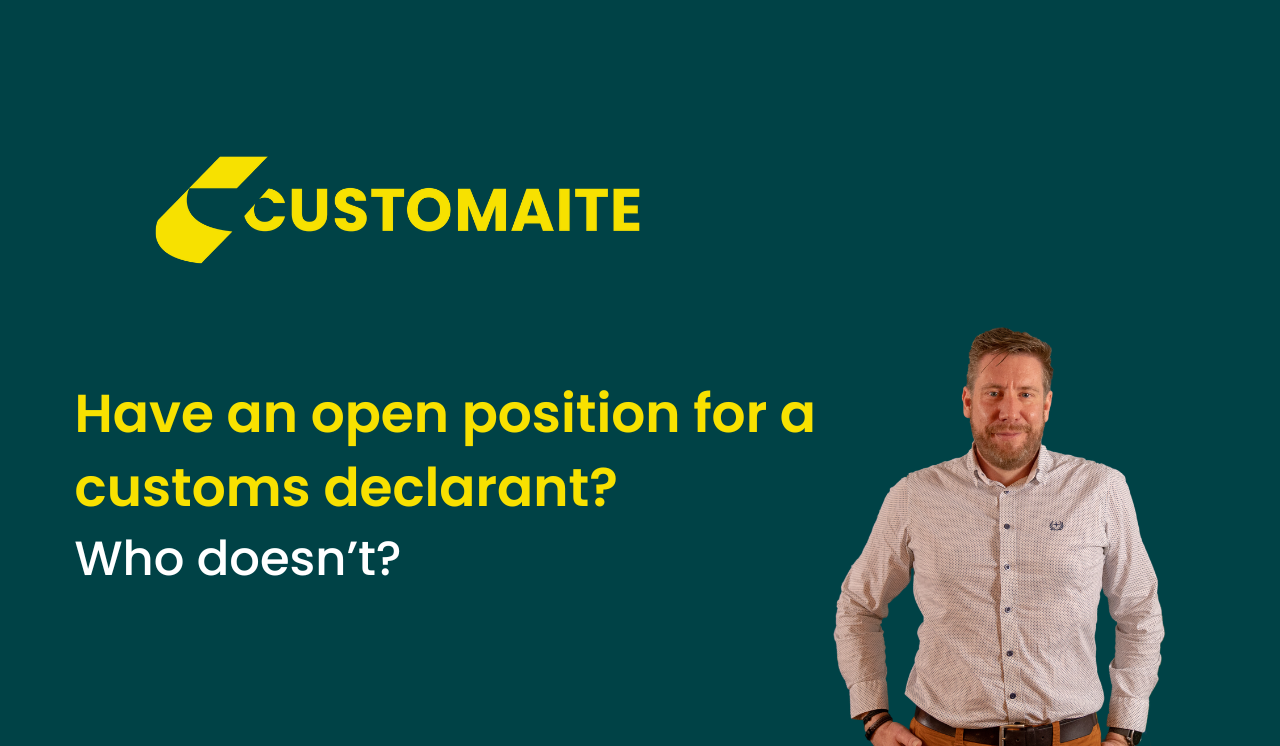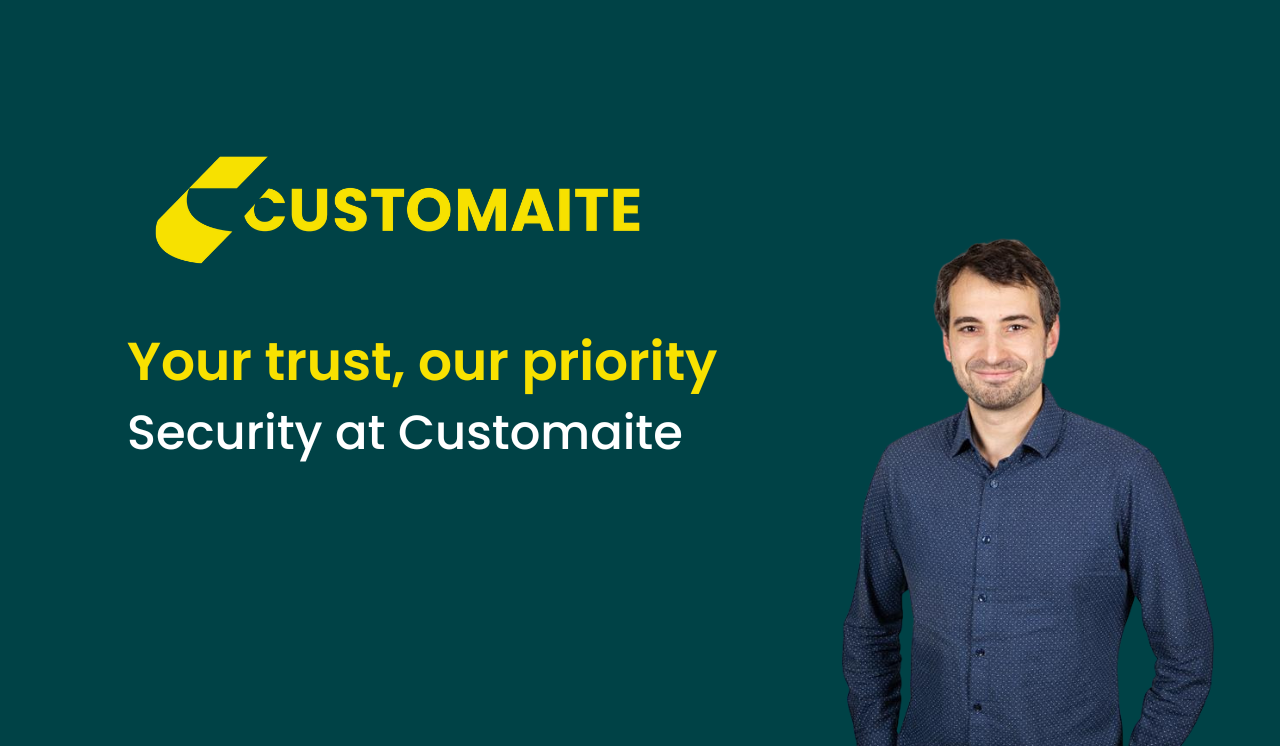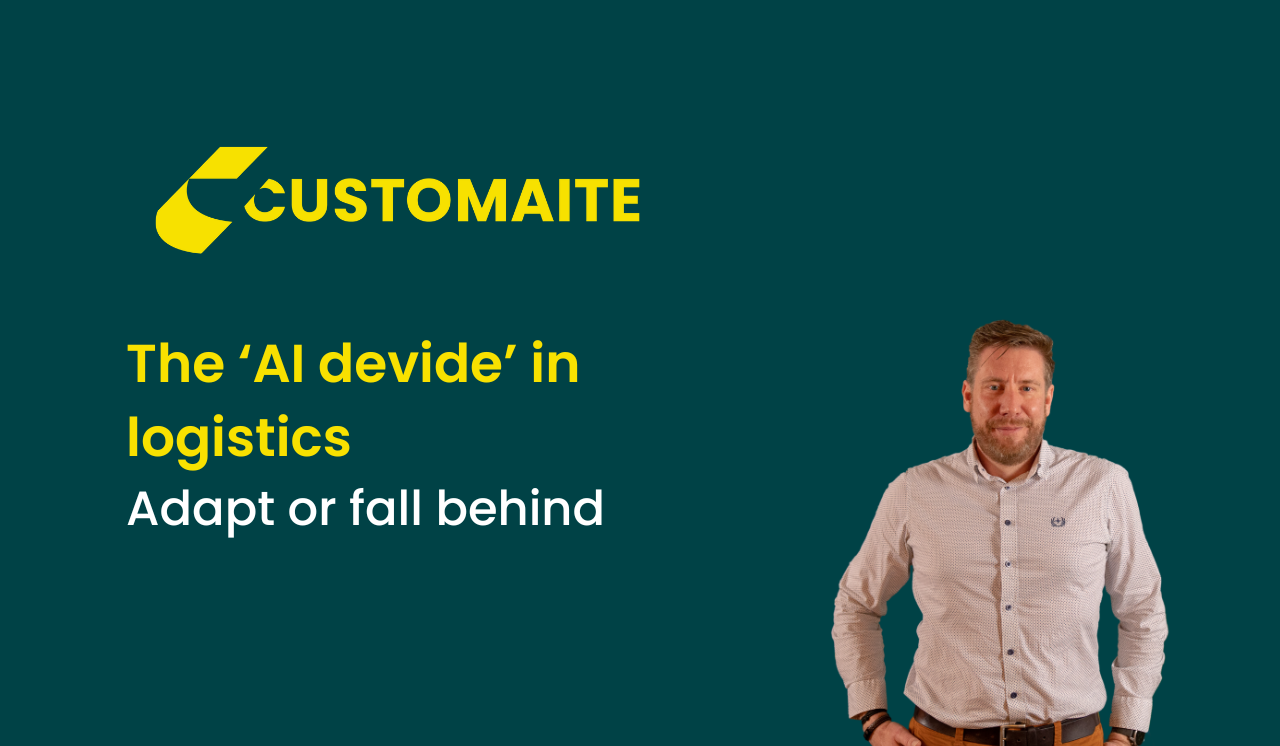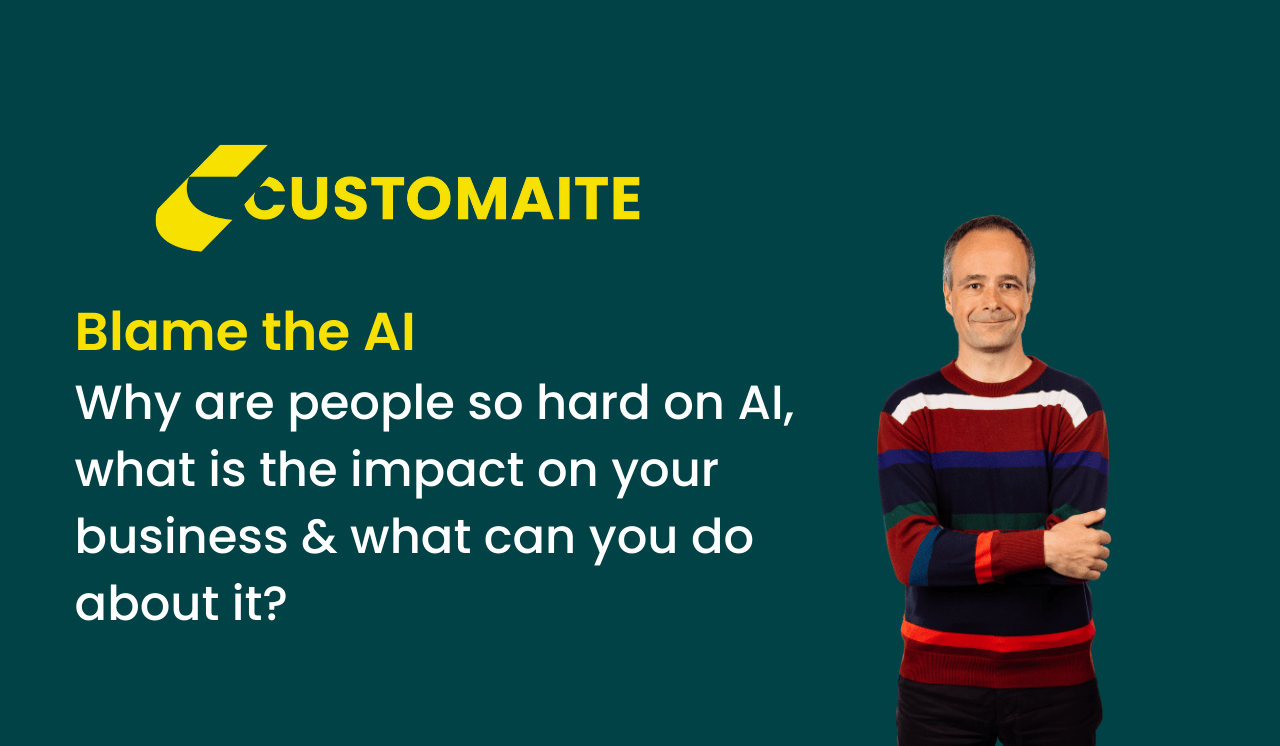In Europe today, there are thousands of open vacancies for customs professionals to fill. This demand for expertise in the field is a testament to the complexity and critical importance of customs work. But it’s also an opportunity and a gap that innovative AI-based solutions like Customaite are ready to bridge. Wim, our co-founder and Chief operations, share his perspective on a new future of work for the customs professional.
As co-founder and COO of Customaite, I’d like to share my perspective on the role of technology and automation in customs work. I want to share with you some insights and trends that we are seeing in the industry, specifically with regards to the job market and the potential for AI to transform how we work.
First and foremost, it's important to acknowledge the current state of the customs job market. There is a significant shortage of customs professionals, with many open vacancies that are proving challenging to fill. Recent data reflects this, showing that there are over 600 open customs related job vacancies in the UK alone, in Belgium and the Netherlands there are over 100 in each country. If we’d take all European countries into account, there are thousands of open vacancies to fill. This demand for expertise in the field is a testament to the complexity and critical importance of customs work.
The demand for expertise in the field is a testament to the complexity and critical importance of customs work. It's also an opportunity, a gap that innovative AI-based solutions are ready to bridge
However, when we examine the day-to-day tasks of customs professionals, we find that at least half of the time spent on making a customs declaration is devoted to labor-intensive activities like color coding information or manually inputting data into Excel to create pivot tables. This is work that could feasibly be done by a less experienced individual or, indeed, an intelligent software solution.
A logical evolution
Let's consider a parallel scenario from the world of accounting. Decades ago, accountants spent much of their time manually crunching numbers. But as software solutions became more advanced, these professionals were able to shift their focus to more value-adding work such as compliance and tax optimization. Their jobs didn't disappear—they evolved.
In the customs industry, software has not kept pace with the rapid evolution seen in the finance world, creating a gap that innovative AI-based solutions are ready to bridge. We see this as an exciting opportunity, not a threat. By leveraging AI, customs professionals won't be recognized for how fast they can retype information, but rather for their knowledge, expertise, and the strategic value they bring to their organizations.
In the face of rapid technological change, it's natural to have concerns. But rest assured, the goal of AI in customs work—as in any industry—is to create more efficiency and effectiveness, not to eliminate jobs. In fact, by addressing the current shortage in the job market and allowing professionals to focus on the work that matters most, AI promises to enhance job satisfaction and recognition in the field.
To put this vision into practice, it is important to deeply understand the process you want to automate and involve the users of the application you are building from the start. That is exactly what we did at Customaite. The result is a digital AI assistant that takes care of mundane repetitive work and guides the declarant through the declaration process from A to Z!
Our mission at Customaite is to create innovative solutions that enable customs professionals to do their best work. We believe in the power of AI to augment human capabilities, not replace them. By embracing these technologies, we can look forward to a future where customs work is more efficient, rewarding, and valued than ever before.

.png)







.png)